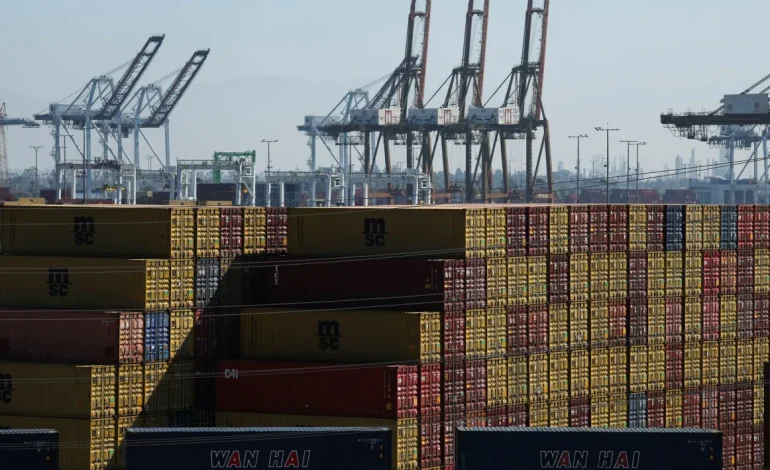President Donald Trump’s announcement of steep new tariffs on copper and pharmaceutical imports has raised fresh questions about inflation risks and the broader economic outlook, even as US stock markets remained largely unchanged on Tuesday, CNBC.
Trump said the US will impose a 50% tariff on copper imports and up to 200% on pharmaceuticals, with the latter expected to take effect within the next 12 to 18 months. While the move marks another escalation in the administration’s protectionist trade strategy, the market reaction was notably subdued. The S&P 500 dipped 0.07%, the Nasdaq edged up by 0.03%, and the Dow Jones Industrial Average declined 0.37%.
The muted response reflects what some analysts describe as investor complacency.
“Markets are either treating the tariff announcements as political posturing or underestimating their economic impact,” noted one market strategist.
The White House has sought to downplay the potential for tariffs to drive inflation. Stephen Miran, chair of the Council of Economic Advisers, told CNBC that such an outcome was unlikely, likening the odds to rare events like “pandemics or meteors.”
“I don’t mean to be dismissive,” Miran said. “All I mean to say is that prediction is difficult, and we should always speak in terms of odds and possibilities.”
However, others warn that the significant tariffs, particularly on copper, a critical industrial metal, and pharmaceuticals, could ripple through supply chains and raise costs across multiple sectors, including electronics, construction, and healthcare.
The tariff news came amid signs of softening global economic conditions. China’s producer price index fell 3.6% in June—its steepest drop in nearly two years—highlighting weakening global demand and industrial overcapacity. Meanwhile, South Korea and Japan, both heavily export-dependent economies, may see further contractions following already shrinking GDP figures in the first quarter.
With the trade environment growing more uncertain, the global economic outlook remains mixed. The MSCI All Country World Index has still climbed nearly 10% year-to-date, driven in part by non-US markets outperforming as they seek to insulate themselves from trade volatility.
On the investing front, retail investors appear to have fared better than many fund managers in navigating the tariff-heavy landscape. Robinhood’s CEO said retail traders who maintained straightforward strategies have outperformed institutional investors, some of whom repositioned heavily after Trump’s so-called “liberation day” of tariffs.










The latest news in your social feeds
Subscribe to our social media platforms to stay tuned